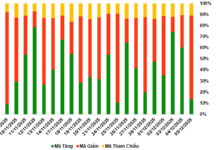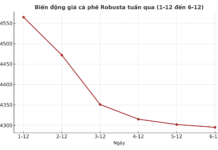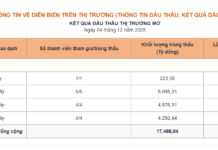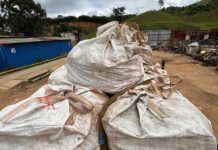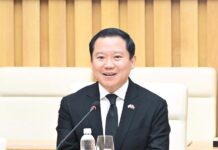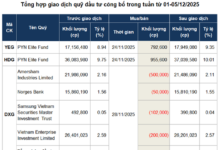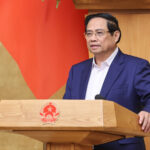On the morning of May 23, Prime Minister Pham Minh Chinh chaired a meeting with ministries, sectors, localities, and relevant agencies on the progress of the 500 kV power line Project, the electricity supply situation during the peak months of 2024 and 2025 and the following years, and the implementation of Power Planning VIII.
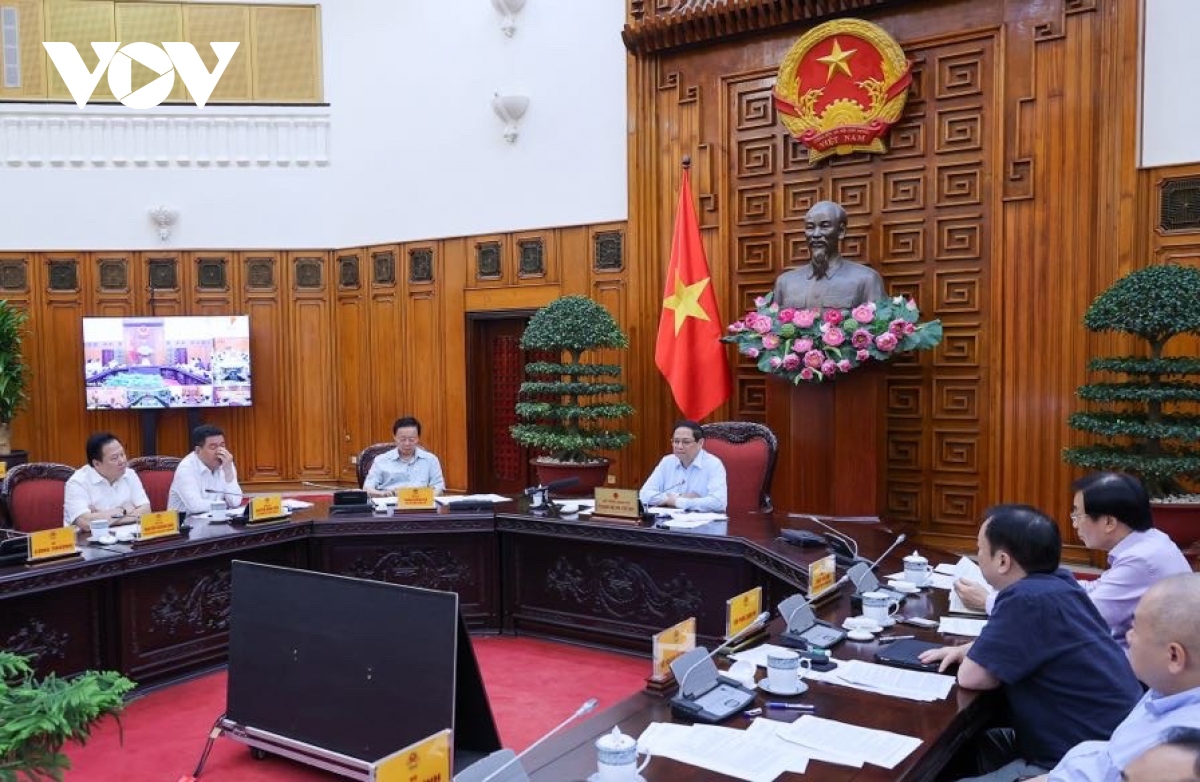
Prime Minister chairs the meeting with ministries, sectors, localities, and relevant agencies on the progress of the 500 kV power line Project.
The meeting was held virtually between the Government Headquarters and the People’s Committees of provinces where the 500 kV power line passes through. The meeting was attended by: Deputy Prime Minister Tran Hong Ha; Minister-Chairman of the Government Office Tran Van Son; Minister of Industry and Trade Nguyen Hong Dien; Chairman of the State Capital Management Committee Nguyen Hoang Anh; leaders of relevant ministries and sectors; leaders of the Vietnam Electricity Group and the Vietnam Oil and Gas Group; and leaders of the provinces of Hung Yen, Hai Duong, Thai Binh, Nam Dinh, Ninh Binh, Thanh Hoa, Nghe An, Ha Tinh, and Quang Binh.
According to the Vietnam Electricity Group, as of now, the 500 kV power line Project from Pho Noi (Hung Yen) to Quang Trach (Quang Binh) has completed site clearance and land handover at 100% of the foundation piles and 93% of the anchor points. However, 7 provinces have not completed the handover of the line route.
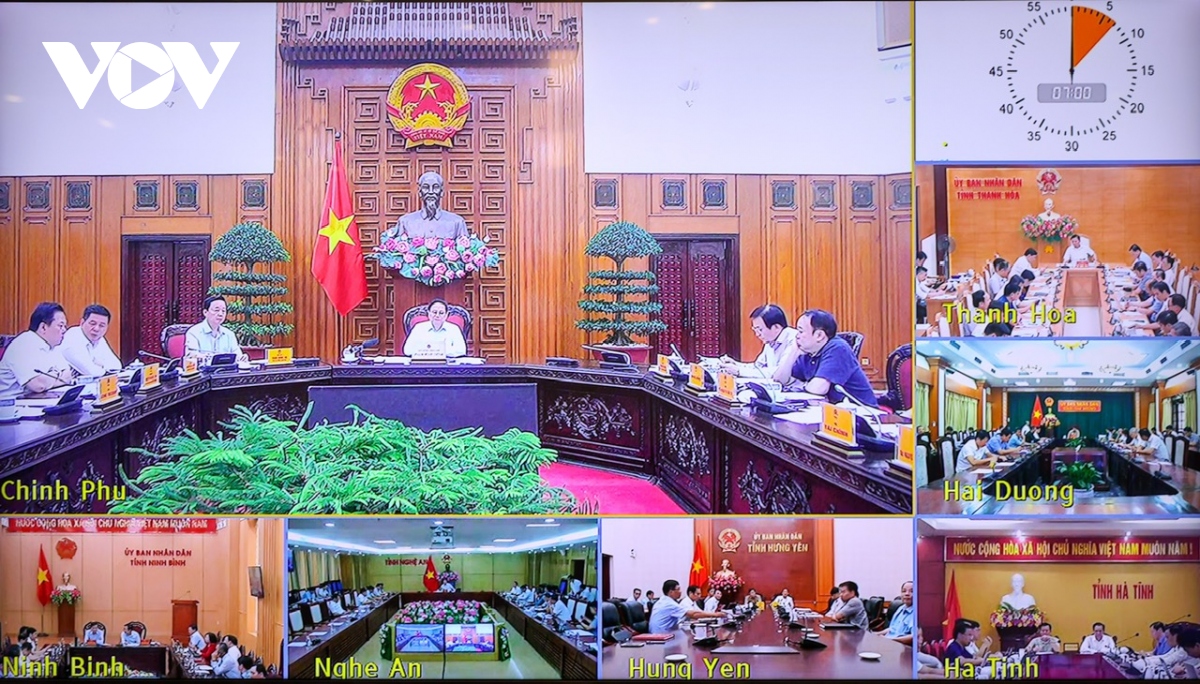
The meeting was held virtually.
Construction work has been accelerated, with 1,162 out of 1,177 foundation piles completed; 398 out of 1,177 poles installed, and the installation of 222 poles is ongoing; 10 out of 513 anchor points have been wired, and wiring is being carried out at 7 out of 513 anchor points. In addition, 667 out of 1,177 steel poles have been supplied and handed over, and the remaining 510 poles are being transported to the site. Imported equipment and materials such as insulators and accessories are on their way and are expected to arrive in early June 2024. It is expected that the pole installation will be completed by June 15, the wiring will be finished by June 20, and the testing and commissioning of the power line will be carried out in the last days of June.
After the leaders of the ministries, sectors, and localities discussed and proposed tasks and solutions to put the 500 kV Quang Trach – Pho Noi power transmission line into operation as planned, Prime Minister Pham Minh Chinh stated that in the first months of 2024, the country’s economy has been recovering and developing positively. In addition, the demand for raw materials and fuel, including electricity consumption, has increased. According to forecasts, electricity demand in 2024 will increase by 9%, but in the first quarter, it has already increased by 3%, with a peak increase of 17% compared to the same period.
Currently, we are entering the hot season, especially in June and July, so the demand for electricity for production, business, and consumption will increase. The completion and operation of the 500 kV Pho Noi – Quang Trach power transmission line is of great importance.
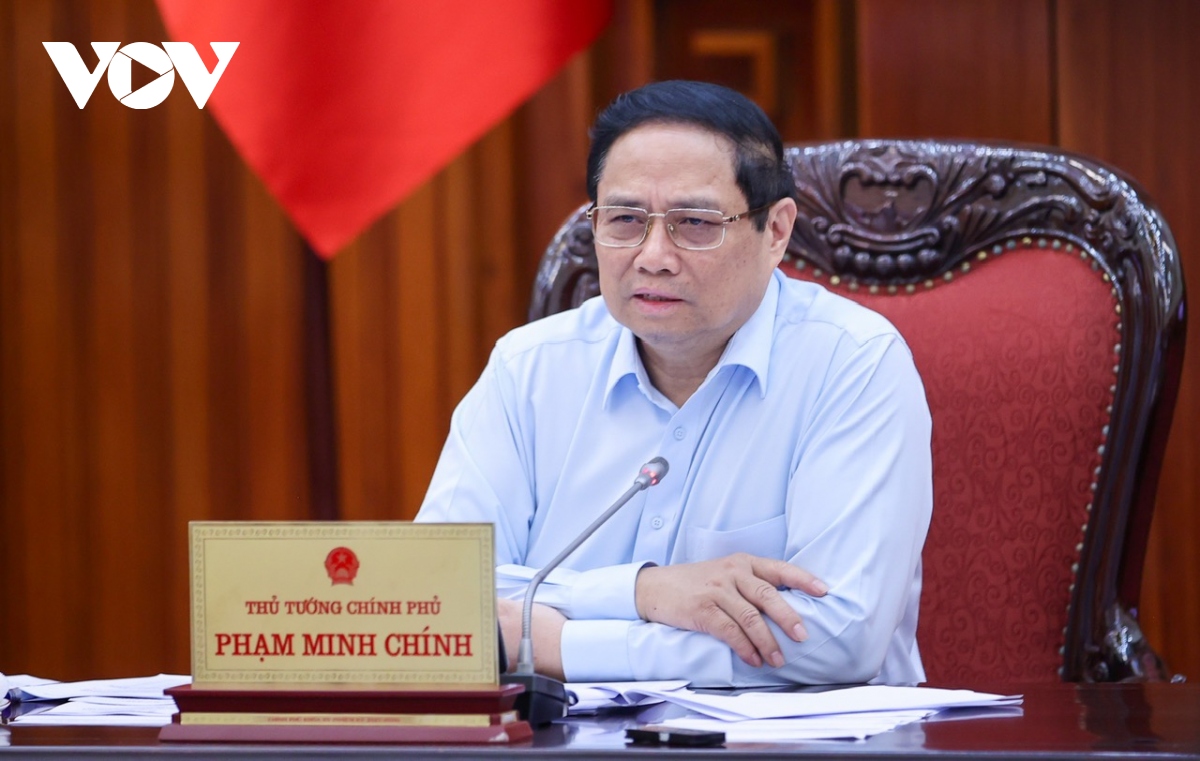
Prime Minister speaks at the meeting.
Acknowledging the achievements in the construction of the 500 kV power line, the Prime Minister commended and applauded the efforts, concentration, and close coordination of the ministries, sectors, and localities, especially the strong support of the people and the dedication of the Vietnam Electricity Group, the National Power Transmission Corporation, and more than 8,000 officers, workers, and engineers at the construction site with the spirit of “overcoming the heat and winning over the rain”, “working through holidays”, and “eating quickly and sleeping urgently”.
The Prime Minister pointed out 6 lessons learned during the implementation of the project and requested that in the coming time, the ministries, sectors, and localities continue to review and focus on the project. He asked the ministries, sectors, units, and localities, especially the leaders, to coordinate in a synchronized and harmonious manner: focus on promoting the production, transportation, and installation of the remaining poles; urgently complete site clearance and land handover of the anchor points to the construction unit for wiring; coordinate to quickly and effectively solve the import of equipment and materials for the project to ensure smooth customs clearance and timely transportation to the construction site; mobilize all human resources and vehicles and provide additional human resources and equipment for the project…
The Prime Minister directed the ministries, sectors, localities, units, officers, engineers, workers, and employees to make more efforts and have a higher determination, according to their functions, tasks, and powers, to overcome difficulties and challenges, with the spirit of “overcoming the heat and winning over the rain”, “working through holidays”, “eating quickly and sleeping urgently”, and “doing it without hesitation” to promote the construction of the project, ensuring progress, quality, and safety, as well as environmental hygiene; ensuring labor recovery and the rights of related subjects; and ensuring the rights and legitimate interests of the people in the areas where the power line passes through.
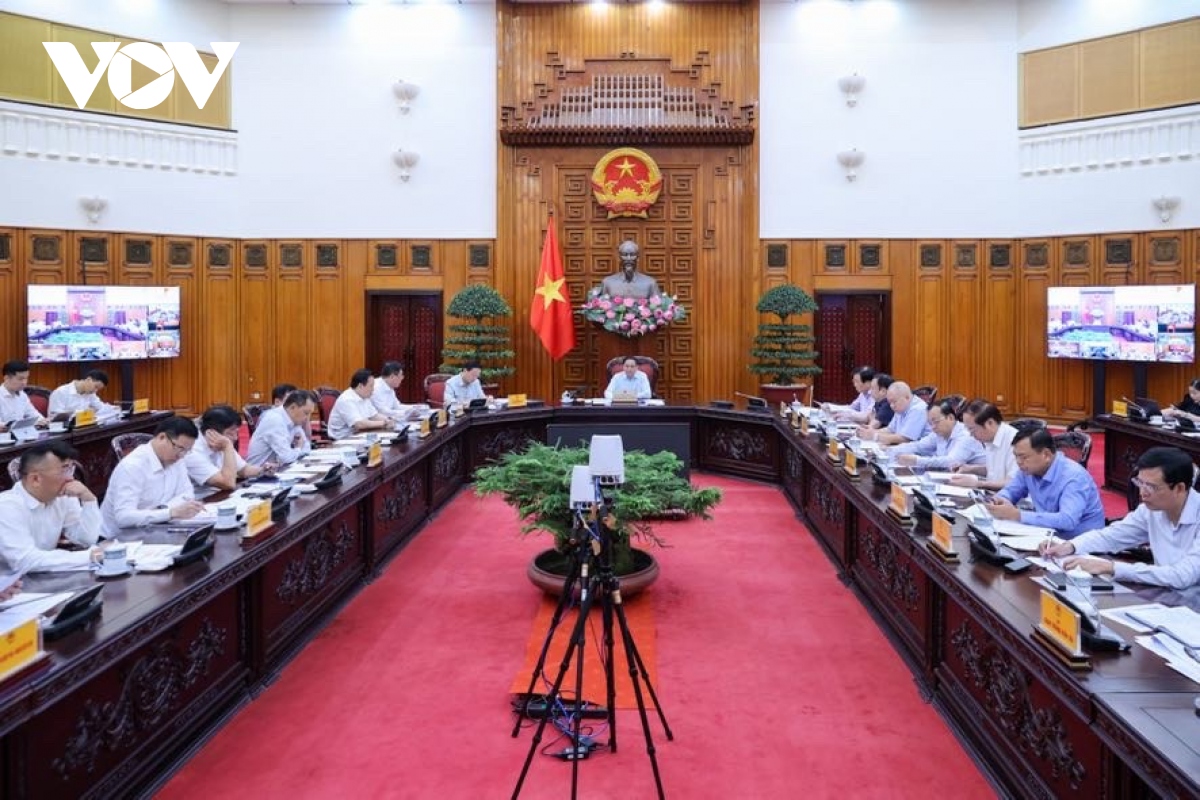
The meeting was held virtually between the Government Headquarters and the People’s Committees of the provinces where the 500 kV power line passes through.
Assigning Deputy Prime Minister Tran Hong Ha to direct and assign specific tasks to each ministry, sector, and locality, Prime Minister Pham Minh Chinh requested to rebuild the project schedule and organize monitoring and supervision on a daily and weekly basis to ensure the commissioning and operation of the 500 kV Pho Noi – Quang Trach power transmission line before June 30.
Regarding the electricity supply situation during the upcoming peak months, according to the Ministry of Industry and Trade and the Vietnam Electricity Group, the accumulated electricity output in the first 5 months of 2024 was about 124.1 billion kWh, up 12.1% over the same period. At the end of April 2024, due to the prolonged hot weather in the three regions, the country’s electricity consumption reached a record high, with the national peak load reaching 47,670 MW, an increase of 13.2%, and the daily output reaching 987.39 million kWh, an increase of 6.87% over the same period in 2023.
It is forecasted that electricity demand will continue to increase in the coming time, due to the demand for electricity for production, business, and consumption, especially during the hot season. Therefore, in addition to maximizing the mobilization of power sources and organizing the transmission of electricity between regions, it is necessary to organize and encourage the whole people to save electricity and use electricity efficiently.
Meanwhile, the leaders of the Ministry of Agriculture and Rural Development and the Ministry of Natural Resources and Environment assessed that the weather this year may be less hot than last year, and electricity demand may not increase suddenly, especially the water sources of hydropower plants may be better for power generation.
At the same time, the sectors and units are actively preparing to supply fuel for power generation, especially coal and gas. The delegates assessed that the national power system will basically meet the electricity demand for socio-economic development and the daily needs of the people in most of 2024.
Regarding the implementation of Power Planning VIII, according to the Ministry of Industry and Trade, the Prime Minister has approved the Plan for the Implementation of Power Planning VIII. In particular, the Prime Minister has approved the list of renewable energy sources of 46 out of 63 provinces and cities, and 17 provinces and cities have not provided information.
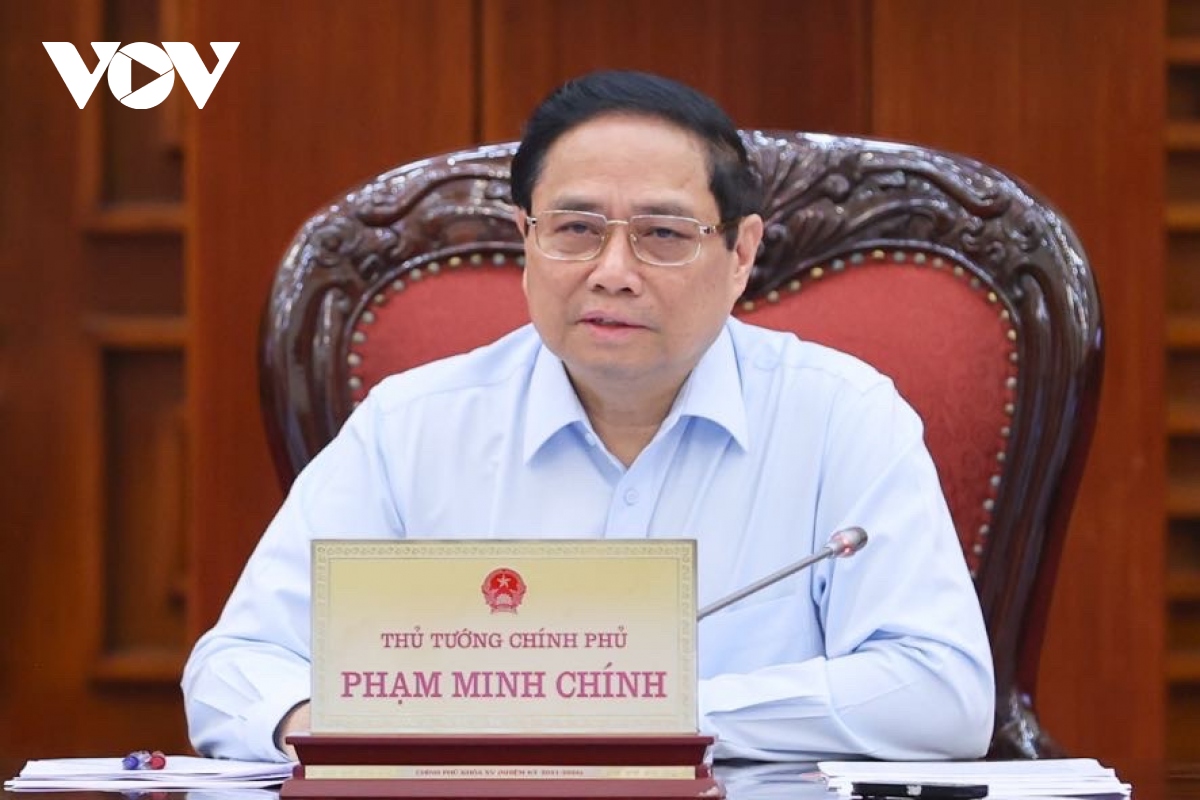
Prime Minister requests to continue diversifying power sources and proactively prepare fuel supply for power generation, especially coal and gas.
The Ministry of Industry and Trade and the provinces and cities are actively building a list of renewable energy projects; handling issues related to projects that have been constructed but overlap with the planning, projects mentioned in the inspection conclusions; and issues related to the connection of renewable energy projects, projects using waste heat, blast furnace gas, and by-products of production processes in industrial establishments…
The representatives of the ministries, sectors, and localities proposed to adjust and supplement the conversion of some coal-fired power projects, and have mechanisms and supplement the planning of new energy projects to effectively implement Power Planning VIII…
Concluding on this content, recalling the electricity consumption situation in the past time and forecasting the electricity consumption situation in the coming time, especially during the peak period, the Prime Minister stated that the national power system has basically met and will meet the electricity demand for socio-economic development and the daily needs of the people. However, the ministries, sectors, localities, and units still need to review and closely monitor the situation, and have plans to proactively respond to possible scenarios.
Accordingly, the Prime Minister requested to continue diversifying power sources; proactively prepare fuel supply for power generation, especially coal and gas, giving priority to the use of domestic coal to ensure the proactive supply of coal for electricity, save foreign currency, and create jobs for the country, while strictly controlling and preventing the import and illegal exploitation of coal; store water in hydropower plants and coordinate water harmoniously and reasonably for power generation and agricultural production, as well as flood control; and urgently complete and issue decrees to maximize the mobilization of wind and solar power and self-produced and self-consumed electricity, direct purchase and sale of electricity, ensuring harmonious interests and shared risks, while preventing negativity, corruption, and interest groups.
The Prime Minister pointed out that there must be mechanisms and policies to mobilize the maximum social resources into investment in the construction of power transmission lines, encouraging resources in the form of public-private partnerships, ensuring harmonious interests between the State, the people, and enterprises; organizing the coordination and exploitation of power sources harmoniously, reasonably, and effectively, including domestic and imported power sources; considering electricity prices appropriately, both encouraging the mobilization of all resources for investment and ensuring the affordability of the people, enterprises, and the economy’s ability to withstand; promoting information and propaganda on electricity distribution plans, guiding people to save and use electricity safely and effectively…


